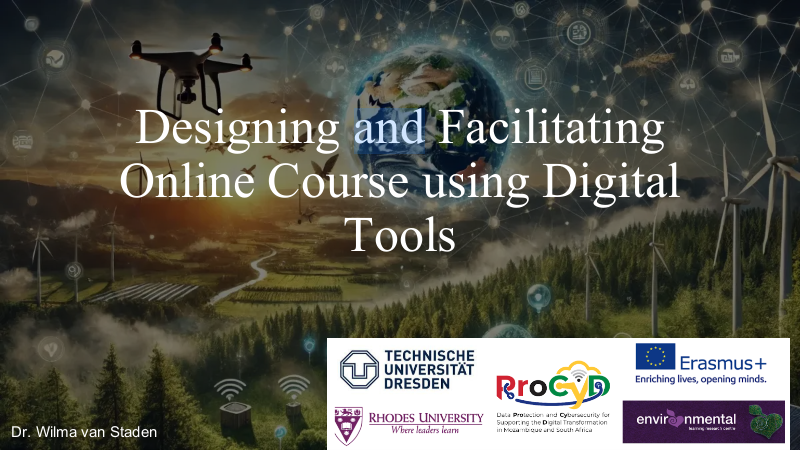
From the 18th to the 20th of June 2025 the Winter School on Evaluative Learning for Digital Course Impact took place as a follow up to the first summer school.
The Winter School aimed to teach participants how to design meaningful feedback processes, evaluate facilitation practices, and co-create tools that support participatory evaluation processes and Education for Sustainable Development.
This was achieved through a variety of online sessions and talks spread out across the three days. The full report inlcuding additional materials is accessible here.
Program
Day one set a focus on understanding the digital transformation processes in higher education in southern Africa.
The next day had a thematic focus on sustainable development principles and curriculum innovation driving the transformation of higher education.
On the final day, sessions revolved around understand the training of trainers, especially in the context of e-learning, enabling participants to amplify their voice and further the digital transformation in a sustainable way.
Further details and recordings the sessions can be found on the winter school’s website
Impact
The Winter School successfully engaged the 15 signed up participants in practical, collaborative learning on evaluative practices in digital course contexts. In order to achieve this, the course included interactive activities, such as co-creating feedback tools and engaging in meaningful discussions. Participants from diverse universities, including those from South Africa, Uganda, and Ghana, contributed to co-designing tools that aligned with their professional contexts. Feedback from the participants was positive, highlighting the value of practical tools for improving teaching and evaluation, and emphasizing the importance of continued conversations on monitoring and evaluation in digital learning.
Participants also gained hands-on experience with tools like i.e. the Padlet feedback mapping, making the course more practical and relevant to their teaching contexts.
We are grateful to out partners at Rhodes University, especially Wilma van Staden, the environmental learning research center and all interested participants shaping the future of education with us.

